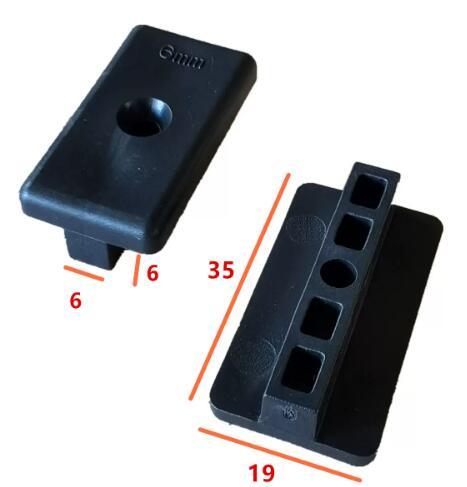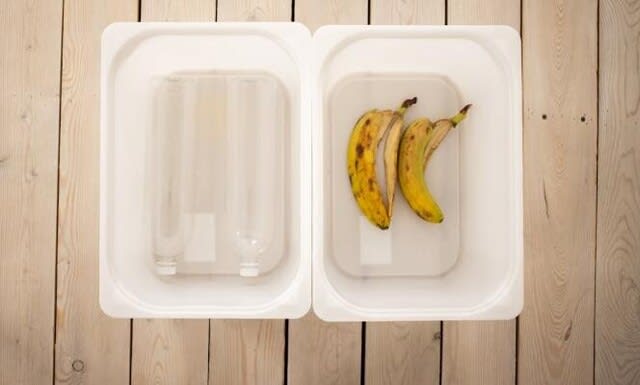建築の革新と贅沢な屋外生活の世界で、アラブ首長国連邦ほど衝撃的な影響を与えた場所はほとんどありません。豪華な都市景観と広大な砂漠の風景が出会うこの活気に満ちた地域は、最先端のデザインと持続可能なソリューションの先駆けとなっています。現代建築への数多くの貢献の中でも、アラブ首長国連邦の WPC デッキは、裏庭、パティオ、公共スペースに広がる革命的なトレンドとして際立っています。それは単に美学の問題ではありません。美しさと持続可能性の調和のとれた融合を生み出し、従来の屋外の優雅さの基準に挑戦することです。
アラブ首長国連邦の屋外生活の見方に足を踏み入れると、木とプラスチックが融合して太陽の下での静けさを再定義する新しい世界を発見するでしょう。WPC、つまり木材とプラスチックの複合材デッキは、比類のない耐久性と従来の木製デッキに代わる環境に優しい代替品を提供することで、屋外スペースの黄金基準を確立しています。自然の木材の雄大な魅力を反映しながら、最も過酷な気候にも耐える、滑らかで割れのないプラットフォームで朝のコーヒーを飲むことを想像してみてください。UAE WPC デッキのトレンドが高まるにつれ、屋外エリアをスタイルと持続可能性の聖域に変えるという約束が伴います。このデッキ現象が世界中のデザイナー、建築家、住宅所有者を魅了している無数の理由を探りながら、この優雅さの進化に飛び込んでください。
建築大国としてのアラブ首長国連邦の台頭
アラブ首長国連邦は、象徴的なスカイラインと畏敬の念を起こさせる構造物により、建築革新の世界的リーダーとして台頭しています。世界で最も高いビルであるブルジュ ハリファから、見事なパーム ジュメイラまで、この地域は最先端のデザインと先見性のある建築の代名詞となっています。アラブ首長国連邦が建築大国として台頭したのは、建築の限界を押し広げ、建築の分野で何が可能かを再定義するという同国の取り組みの証です。
この建築革命に貢献している主な要因の 1 つは、WPC デッキの使用です。この革新的な素材は、美しさと持続可能性のユニークな組み合わせにより、アラブ首長国連邦で絶大な人気を博しています。WPC デッキは、自然の美しさと現代のテクノロジーが完璧に融合しており、このダイナミックな地域の屋外スペースに最適な選択肢となっています。
イノベーションの受け入れ: WPC デッキの理解
WPC デッキは、木材プラスチック複合デッキとも呼ばれ、木材繊維と再生プラスチックを組み合わせた革新的な素材です。この融合により、腐食、反り、色あせに強い、耐久性がありメンテナンスの手間がかからないデッキ オプションが生まれます。WPC デッキは、その卓越した耐久性に加えて、比類のないデザインの柔軟性を提供し、建築家やデザイナーがビジョンを反映したユニークな屋外スペースを創造できるようにします。
アラブ首長国連邦の WPC デッキは、厳しい気候でも性能を高める高度なテクノロジーを取り入れることで、イノベーションをさらに一歩進めています。この地域の極端な気温と高湿度は、従来の木製デッキに悪影響を及ぼす可能性があります。しかし、WPC デッキは、美観や機能性を損なうことなく、これらの厳しい条件に耐えられるように設計されています。
美観と持続可能性の融合: WPC デッキの魅力
アラブ首長国連邦の WPC デッキの最も魅力的な側面の 1 つは、木材の自然な美しさを模倣しながら、優れた持続可能性を提供できることです。幅広い色、質感、仕上げが用意されている WPC デッキにより、住宅所有者や設計者は、周囲とシームレスに調和する屋外スペースを作成できます。
定期的な染色、シーリング、メンテナンスが必要な従来の木製デッキとは異なり、WPC デッキは実質的にメンテナンスフリーです。これにより、時間と労力を節約できるだけでなく、従来のデッキ材料に関連する環境への影響も軽減されます。 WPC デッキを選ぶことで、住宅所有者は森林破壊や有害な化学処理に加担することなく、木材の時代を超えた優雅さを楽しむことができます。
アラブ首長国連邦の WPC デッキが従来のオプションより優れている点
アラブ首長国連邦の WPC デッキを、ハードウッドや複合材のデッキなどの従来のオプションと比較すると、いくつかの利点が明らかになります。まず、WPC デッキは耐久性と寿命が向上しています。腐敗、裂け、色あせに強いため、屋外スペースは今後何年も美しさを保ちます。
耐久性に加えて、WPC デッキは湿気やカビの発生にも非常に強いです。そのため、湿度の高い場所や雨が頻繁に降る屋外エリアに最適です。濡れると反ったり滑りやすくなったりする木製デッキとは異なり、WPC デッキは安定していて足元も安全です。
風雨に耐える: 厳しい気候での WPC デッキの耐久性
アラブ首長国連邦は年間を通じて極端な気象条件に見舞われます。焼けつくような夏から
In the world of architectural innovation and luxurious outdoor living, few places have made as striking an impact as the United Arab Emirates. This vibrant region, where opulent cityscapes meet sprawling desert landscapes, has become a beacon for cutting-edge design and sustainable solutions. Among its numerous contributions to modern architecture, United Arab Emirates WPC decking stands out as a revolutionary trend that's sweeping across backyards, patios, and public spaces alike. It's not just about aesthetics; it's about creating a harmonious blend of beauty and sustainability that challenges conventional norms of outdoor elegance.
Step into the Emirati view of outdoor living, and you'll discover a new world where wood and plastic converge to redefine tranquility under the sun. WPC, or wood-plastic composite, decking is setting a golden standard in outdoor spaces by offering unmatched durability and an eco-friendly alternative to traditional wooden decks. Imagine sipping your morning coffee on a sleek, splinter-free platform that mirrors the majestic allure of natural timber while remaining resistant to the harshest of climates. As the trend of UAE WPC decking ascends, it is accompanied by a promise—a promise to transform outdoor areas into sanctuaries of style and sustainability. Dive into this evolution of elegance as we explore the myriad reasons why this decking phenomenon is captivating designers, architects, and homeowners around the world.
The Rise of United Arab Emirates as an Architectural Powerhouse
The United Arab Emirates has emerged as a global leader in architectural innovation, with its iconic skyline and awe-inspiring structures. From the world's tallest building, the Burj Khalifa, to the stunning Palm Jumeirah, this region has become synonymous with cutting-edge design and visionary construction. The rise of the United Arab Emirates as an architectural powerhouse is a testament to its commitment to pushing boundaries and redefining what is possible in the realm of architecture.
One of the key factors contributing to this architectural revolution is the use of WPC decking. This innovative material has gained immense popularity in the United Arab Emirates due to its unique combination of aesthetics and sustainability. WPC decking offers a perfect blend of natural beauty and modern technology, making it an ideal choice for outdoor spaces in this dynamic region.
Embracing Innovation: Understanding WPC Decking
WPC decking, also known as wood-plastic composite decking, is a revolutionary material that combines wood fibers and recycled plastic. This fusion creates a durable and low-maintenance decking option that is resistant to rot, warping, and fading. In addition to its exceptional durability, WPC decking offers unparalleled design flexibility, allowing architects and designers to create unique outdoor spaces that reflect their vision.
United Arab Emirates WPC decking takes innovation one step further by incorporating advanced technologies that enhance its performance even in harsh climates. The extreme temperatures and high humidity levels in this region can take a toll on traditional wooden decks. However, WPC decking is engineered to withstand these challenging conditions without compromising on aesthetics or functionality.
Aesthetics Meets Sustainability: The Allure of WPC Decking
One of the most captivating aspects of United Arab Emirates WPC decking is its ability to mimic the natural beauty of wood while offering superior sustainability. With a wide range of colors, textures, and finishes available, WPC decking allows homeowners and designers to create outdoor spaces that seamlessly blend with their surroundings.
Unlike traditional wooden decks that require regular staining, sealing, and maintenance, WPC decking is virtually maintenance-free. This not only saves time and effort but also reduces the environmental impact associated with traditional deck materials. By choosing WPC decking, homeowners can enjoy the timeless elegance of wood without contributing to deforestation or harmful chemical treatments.
Advantages of United Arab Emirates WPC Decking Over Traditional Options
When comparing United Arab Emirates WPC decking to traditional options such as hardwood or composite decking, several advantages become apparent. Firstly, WPC decking offers enhanced durability and longevity. Its resistance to rotting, splintering, and fading ensures that outdoor spaces retain their beauty for years to come.
In addition to its durability, WPC decking is also highly resistant to moisture and mold growth. This makes it an ideal choice for outdoor areas exposed to high humidity levels or frequent rainfall. Unlike wood decks that can warp or become slippery when wet, WPC decking remains stable and safe underfoot.
Weathering the Elements: Durability of WPC Decking in Harsh Climates
The United Arab Emirates experiences extreme weather conditions throughout the year. From scorching summers to occasional sandstorms, outdoor structures must be able to withstand these elements without compromising on aesthetics or functionality.
United Arab Emirates WPC decking is specifically engineered to weather these harsh climates with ease. Its composition makes it highly resistant to UV rays, ensuring that it retains its color vibrancy even under intense sunlight. Additionally, its moisture-resistant properties prevent warping or cracking caused by humidity or sudden temperature changes.
Customization and Design Freedom with UAE WPC Decking
One of the key advantages of United Arab Emirates WPC decking is its versatility and design freedom. Whether you prefer a sleek, modern look or a rustic, natural aesthetic, WPC decking can be customized to suit your style.
The wide range of colors, finishes, and textures available allows homeowners and designers to create outdoor spaces that are truly unique. From bold statement decks to subtle accents, the possibilities are endless with United Arab Emirates WPC decking.
Eco-Friendly Choice: How WPC Decking Supports Sustainability
In an era where sustainability is paramount, United Arab Emirates WPC decking offers a responsible choice for outdoor spaces. By utilizing recycled materials such as plastic and wood fibers, this decking option reduces the demand for virgin resources and minimizes waste.
Furthermore, the longevity of WPC decking means fewer replacements over time, reducing the overall environmental impact. Its low-maintenance nature also eliminates the need for harmful chemical treatments or frequent staining, making it an eco-friendly alternative to traditional deck materials.
Transforming Outdoor Spaces: Inspirational Uses of WPC Decking
The versatility of United Arab Emirates WPC decking opens up a world of possibilities when it comes to transforming outdoor spaces. From residential gardens to public parks and commercial venues, this innovative material can elevate any outdoor area.
Imagine lounging by a poolside deck that seamlessly blends with its surroundings or hosting an alfresco dinner party on a stylish terrace. With United Arab Emirates WPC decking, these visions become a reality. Its durability, aesthetics, and sustainability make it the perfect choice for creating inviting outdoor spaces that leave a lasting impression.
United Arab Emirates WPC Decking: An Investment in Long-Term Elegance
Investing in United Arab Emirates WPC decking is not just about creating a beautiful outdoor space; it's about making a long-term investment in elegance and sustainability. With its unmatched durability, low-maintenance nature, and eco-friendly properties, WPC decking offers a solution that stands the test of time.
As the United Arab Emirates continues to redefine outdoor elegance through architectural innovation, WPC decking remains at the forefront of this revolution. Its ability to combine aesthetics with sustainability has captured the attention of designers, architects, and homeowners worldwide. Embrace the allure of United Arab Emirates WPC decking and elevate your outdoor living experience to new heights.
アラブ首長国連邦の屋外生活の見方に足を踏み入れると、木とプラスチックが融合して太陽の下での静けさを再定義する新しい世界を発見するでしょう。WPC、つまり木材とプラスチックの複合材デッキは、比類のない耐久性と従来の木製デッキに代わる環境に優しい代替品を提供することで、屋外スペースの黄金基準を確立しています。自然の木材の雄大な魅力を反映しながら、最も過酷な気候にも耐える、滑らかで割れのないプラットフォームで朝のコーヒーを飲むことを想像してみてください。UAE WPC デッキのトレンドが高まるにつれ、屋外エリアをスタイルと持続可能性の聖域に変えるという約束が伴います。このデッキ現象が世界中のデザイナー、建築家、住宅所有者を魅了している無数の理由を探りながら、この優雅さの進化に飛び込んでください。
建築大国としてのアラブ首長国連邦の台頭
アラブ首長国連邦は、象徴的なスカイラインと畏敬の念を起こさせる構造物により、建築革新の世界的リーダーとして台頭しています。世界で最も高いビルであるブルジュ ハリファから、見事なパーム ジュメイラまで、この地域は最先端のデザインと先見性のある建築の代名詞となっています。アラブ首長国連邦が建築大国として台頭したのは、建築の限界を押し広げ、建築の分野で何が可能かを再定義するという同国の取り組みの証です。
この建築革命に貢献している主な要因の 1 つは、WPC デッキの使用です。この革新的な素材は、美しさと持続可能性のユニークな組み合わせにより、アラブ首長国連邦で絶大な人気を博しています。WPC デッキは、自然の美しさと現代のテクノロジーが完璧に融合しており、このダイナミックな地域の屋外スペースに最適な選択肢となっています。
イノベーションの受け入れ: WPC デッキの理解
WPC デッキは、木材プラスチック複合デッキとも呼ばれ、木材繊維と再生プラスチックを組み合わせた革新的な素材です。この融合により、腐食、反り、色あせに強い、耐久性がありメンテナンスの手間がかからないデッキ オプションが生まれます。WPC デッキは、その卓越した耐久性に加えて、比類のないデザインの柔軟性を提供し、建築家やデザイナーがビジョンを反映したユニークな屋外スペースを創造できるようにします。
アラブ首長国連邦の WPC デッキは、厳しい気候でも性能を高める高度なテクノロジーを取り入れることで、イノベーションをさらに一歩進めています。この地域の極端な気温と高湿度は、従来の木製デッキに悪影響を及ぼす可能性があります。しかし、WPC デッキは、美観や機能性を損なうことなく、これらの厳しい条件に耐えられるように設計されています。
美観と持続可能性の融合: WPC デッキの魅力
アラブ首長国連邦の WPC デッキの最も魅力的な側面の 1 つは、木材の自然な美しさを模倣しながら、優れた持続可能性を提供できることです。幅広い色、質感、仕上げが用意されている WPC デッキにより、住宅所有者や設計者は、周囲とシームレスに調和する屋外スペースを作成できます。
定期的な染色、シーリング、メンテナンスが必要な従来の木製デッキとは異なり、WPC デッキは実質的にメンテナンスフリーです。これにより、時間と労力を節約できるだけでなく、従来のデッキ材料に関連する環境への影響も軽減されます。 WPC デッキを選ぶことで、住宅所有者は森林破壊や有害な化学処理に加担することなく、木材の時代を超えた優雅さを楽しむことができます。
アラブ首長国連邦の WPC デッキが従来のオプションより優れている点
アラブ首長国連邦の WPC デッキを、ハードウッドや複合材のデッキなどの従来のオプションと比較すると、いくつかの利点が明らかになります。まず、WPC デッキは耐久性と寿命が向上しています。腐敗、裂け、色あせに強いため、屋外スペースは今後何年も美しさを保ちます。
耐久性に加えて、WPC デッキは湿気やカビの発生にも非常に強いです。そのため、湿度の高い場所や雨が頻繁に降る屋外エリアに最適です。濡れると反ったり滑りやすくなったりする木製デッキとは異なり、WPC デッキは安定していて足元も安全です。
風雨に耐える: 厳しい気候での WPC デッキの耐久性
アラブ首長国連邦は年間を通じて極端な気象条件に見舞われます。焼けつくような夏から
In the world of architectural innovation and luxurious outdoor living, few places have made as striking an impact as the United Arab Emirates. This vibrant region, where opulent cityscapes meet sprawling desert landscapes, has become a beacon for cutting-edge design and sustainable solutions. Among its numerous contributions to modern architecture, United Arab Emirates WPC decking stands out as a revolutionary trend that's sweeping across backyards, patios, and public spaces alike. It's not just about aesthetics; it's about creating a harmonious blend of beauty and sustainability that challenges conventional norms of outdoor elegance.
Step into the Emirati view of outdoor living, and you'll discover a new world where wood and plastic converge to redefine tranquility under the sun. WPC, or wood-plastic composite, decking is setting a golden standard in outdoor spaces by offering unmatched durability and an eco-friendly alternative to traditional wooden decks. Imagine sipping your morning coffee on a sleek, splinter-free platform that mirrors the majestic allure of natural timber while remaining resistant to the harshest of climates. As the trend of UAE WPC decking ascends, it is accompanied by a promise—a promise to transform outdoor areas into sanctuaries of style and sustainability. Dive into this evolution of elegance as we explore the myriad reasons why this decking phenomenon is captivating designers, architects, and homeowners around the world.
The Rise of United Arab Emirates as an Architectural Powerhouse
The United Arab Emirates has emerged as a global leader in architectural innovation, with its iconic skyline and awe-inspiring structures. From the world's tallest building, the Burj Khalifa, to the stunning Palm Jumeirah, this region has become synonymous with cutting-edge design and visionary construction. The rise of the United Arab Emirates as an architectural powerhouse is a testament to its commitment to pushing boundaries and redefining what is possible in the realm of architecture.
One of the key factors contributing to this architectural revolution is the use of WPC decking. This innovative material has gained immense popularity in the United Arab Emirates due to its unique combination of aesthetics and sustainability. WPC decking offers a perfect blend of natural beauty and modern technology, making it an ideal choice for outdoor spaces in this dynamic region.
Embracing Innovation: Understanding WPC Decking
WPC decking, also known as wood-plastic composite decking, is a revolutionary material that combines wood fibers and recycled plastic. This fusion creates a durable and low-maintenance decking option that is resistant to rot, warping, and fading. In addition to its exceptional durability, WPC decking offers unparalleled design flexibility, allowing architects and designers to create unique outdoor spaces that reflect their vision.
United Arab Emirates WPC decking takes innovation one step further by incorporating advanced technologies that enhance its performance even in harsh climates. The extreme temperatures and high humidity levels in this region can take a toll on traditional wooden decks. However, WPC decking is engineered to withstand these challenging conditions without compromising on aesthetics or functionality.
Aesthetics Meets Sustainability: The Allure of WPC Decking
One of the most captivating aspects of United Arab Emirates WPC decking is its ability to mimic the natural beauty of wood while offering superior sustainability. With a wide range of colors, textures, and finishes available, WPC decking allows homeowners and designers to create outdoor spaces that seamlessly blend with their surroundings.
Unlike traditional wooden decks that require regular staining, sealing, and maintenance, WPC decking is virtually maintenance-free. This not only saves time and effort but also reduces the environmental impact associated with traditional deck materials. By choosing WPC decking, homeowners can enjoy the timeless elegance of wood without contributing to deforestation or harmful chemical treatments.
Advantages of United Arab Emirates WPC Decking Over Traditional Options
When comparing United Arab Emirates WPC decking to traditional options such as hardwood or composite decking, several advantages become apparent. Firstly, WPC decking offers enhanced durability and longevity. Its resistance to rotting, splintering, and fading ensures that outdoor spaces retain their beauty for years to come.
In addition to its durability, WPC decking is also highly resistant to moisture and mold growth. This makes it an ideal choice for outdoor areas exposed to high humidity levels or frequent rainfall. Unlike wood decks that can warp or become slippery when wet, WPC decking remains stable and safe underfoot.
Weathering the Elements: Durability of WPC Decking in Harsh Climates
The United Arab Emirates experiences extreme weather conditions throughout the year. From scorching summers to occasional sandstorms, outdoor structures must be able to withstand these elements without compromising on aesthetics or functionality.
United Arab Emirates WPC decking is specifically engineered to weather these harsh climates with ease. Its composition makes it highly resistant to UV rays, ensuring that it retains its color vibrancy even under intense sunlight. Additionally, its moisture-resistant properties prevent warping or cracking caused by humidity or sudden temperature changes.
Customization and Design Freedom with UAE WPC Decking
One of the key advantages of United Arab Emirates WPC decking is its versatility and design freedom. Whether you prefer a sleek, modern look or a rustic, natural aesthetic, WPC decking can be customized to suit your style.
The wide range of colors, finishes, and textures available allows homeowners and designers to create outdoor spaces that are truly unique. From bold statement decks to subtle accents, the possibilities are endless with United Arab Emirates WPC decking.
Eco-Friendly Choice: How WPC Decking Supports Sustainability
In an era where sustainability is paramount, United Arab Emirates WPC decking offers a responsible choice for outdoor spaces. By utilizing recycled materials such as plastic and wood fibers, this decking option reduces the demand for virgin resources and minimizes waste.
Furthermore, the longevity of WPC decking means fewer replacements over time, reducing the overall environmental impact. Its low-maintenance nature also eliminates the need for harmful chemical treatments or frequent staining, making it an eco-friendly alternative to traditional deck materials.
Transforming Outdoor Spaces: Inspirational Uses of WPC Decking
The versatility of United Arab Emirates WPC decking opens up a world of possibilities when it comes to transforming outdoor spaces. From residential gardens to public parks and commercial venues, this innovative material can elevate any outdoor area.
Imagine lounging by a poolside deck that seamlessly blends with its surroundings or hosting an alfresco dinner party on a stylish terrace. With United Arab Emirates WPC decking, these visions become a reality. Its durability, aesthetics, and sustainability make it the perfect choice for creating inviting outdoor spaces that leave a lasting impression.
United Arab Emirates WPC Decking: An Investment in Long-Term Elegance
Investing in United Arab Emirates WPC decking is not just about creating a beautiful outdoor space; it's about making a long-term investment in elegance and sustainability. With its unmatched durability, low-maintenance nature, and eco-friendly properties, WPC decking offers a solution that stands the test of time.
As the United Arab Emirates continues to redefine outdoor elegance through architectural innovation, WPC decking remains at the forefront of this revolution. Its ability to combine aesthetics with sustainability has captured the attention of designers, architects, and homeowners worldwide. Embrace the allure of United Arab Emirates WPC decking and elevate your outdoor living experience to new heights.















 e and scratch resistance. In addition, the brand focuses on eco-compatibility and sustainability, with its products complying with strict European environmental standards.
e and scratch resistance. In addition, the brand focuses on eco-compatibility and sustainability, with its products complying with strict European environmental standards.